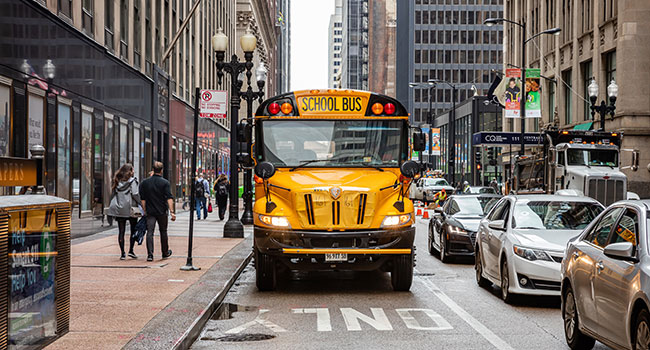
Department of Education's Office for Civil Rights Launches Title VI Investigation into Chicago Public Schools
This investigation is based on a complaint filed with OCR by Parents Defending Education (now "Defending Education") alleging that CPS has an academic-achievement initiative that discriminates against students, on the basis of race.
The complaint asserts that CPS's 2023-2024 "Black Students Success Plan" violates Title VI by focusing on remedial measures only for black students, despite acknowledging that Chicago students of all races struggle academically.
"Chicago Public Schools have a record of academic failure, leaving students from all backgrounds and races struggling and ill-prepared to meet the challenges and enjoy the rewards of contemporary American life," said acting assistant secretary for Civil Rights Craig Trainor.
"Rather than address its record honestly, CPS seeks to allocate additional resources to favored students, on the basis of race. The Trump-McMahon Department of Education will not allow federal funds, provided for the benefit of all students, to be used in this pernicious and unlawful manner. To CPS, I say this: Every American student deserves access to a quality education, and the Trump Administration will fight tirelessly to uphold that ideal and ensure all students are treated equally under law."
"No student should be denied an educational opportunity because of the color of their skin, yet perversely, that's exactly what Chicago Public Schools has chosen to do – despite the fact that the district's own data clearly demonstrates that students of all races are struggling academically," said Defending Ed president and founder Nicole Neily. "Amid abysmal proficiency rates, discipline crises, and a nearly $10 billion budget deficit, district leaders made a conscious decision to allocate finite resources to some students and not others – and we are grateful that the Department of Education has opened an investigation into this injustice. The education provided by CPS enabled my family to rebuild their lives after leaving the internment camps in California during WWII – which is why I find it particularly lamentable that the system now encourages treating students differently, on the basis of race."
The complaint alleges that CPS developed the "Black Students Success Plan" as part of a "deep equity-focused planning process that will result in support[ing] closing outcome gaps for Black students in the district." The working group featured senior district leaders between December 2023 and April 2024 and convened over a dozen group meetings and community roundtables.
Despite the fact, that the initiative focuses on improving outcomes only for black students, slideshows from the kickoff meeting acknowledge that Chicago students of all races struggle academically. One slide featured in the complaint "highlights black...students' struggle with reading proficiency: only 6 percent are mid or above grade level...but the same graphic shows that Hispanic students face even greater difficulties: 5 percent are mid or above grade level."
Title VI of the Civil Rights Act (1964) prohibits discrimination on the bases of race, color, and national origin in education programs and activities receiving federal funding. Institutions' violation of Title VI can result in loss of federal funds.